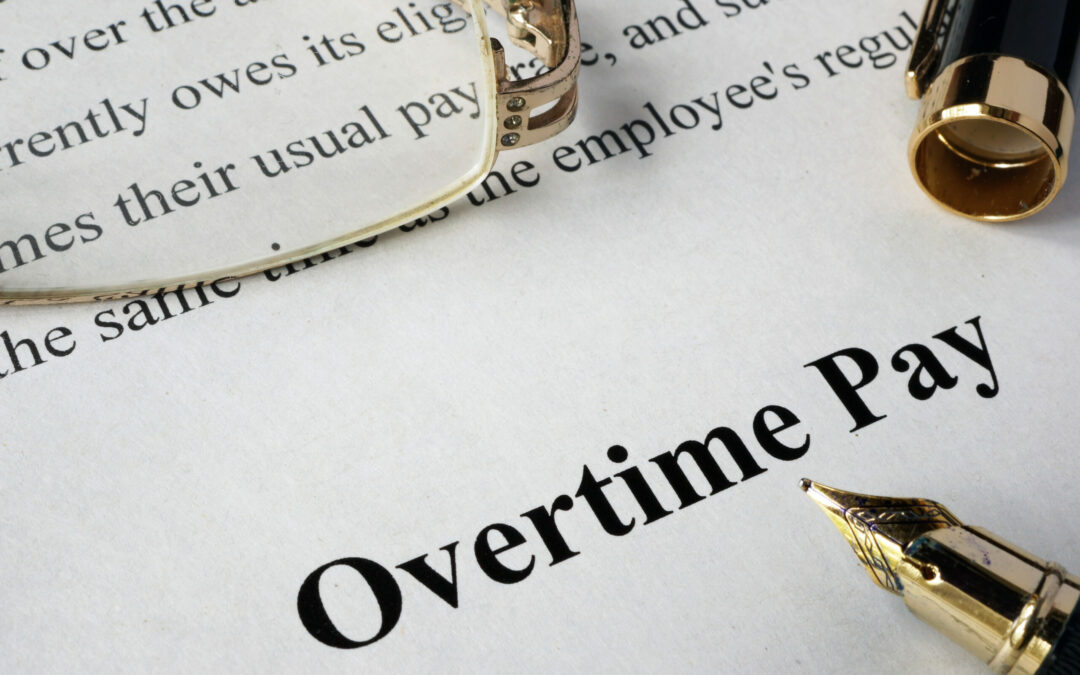Perhaps you’re an employer paying an employee on a salary basis, rather than hourly. If that employee works more than 40 hours in a workweek, you don’t have to pay overtime simply because they are on salary, right? Wrong.
Salary is only one part of the overtime equation. The Fair Labor Standards Act (“FLSA”) requires most employers to pay employees 1.5 times their regular rate of pay for all hours worked beyond 40 in a workweek unless they fall under an exemption.
The most used exemptions are for administrative, executive, and professional jobs, which are collectively called white-collar exemptions. Common cases of misclassification involve support staff, like executive assistants, employees with “manager” in their job titles who do not manage anyone, and different types of sales jobs.
Even if you pay your employee a salary, you could still owe overtime wages. When Davis Business Law’s seasoned team of employment attorneys build a relationship with new clients, we sometimes see clients misunderstand overtime rules. But we can step in, audit the exemptions, and correct the situation before our client faces a wage and hour lawsuit. Call us now at (866) 950-7634 or contact us online to discuss how we can help your business reduce its wage and hour risk.
What Is the Salary Requirement for FLSA Exemptions?
The FLSA’s exemption test has two requirements – salary level and job duty. The greater emphasis is on the job duty and the type of work the employee does.
But, regarding salary level, to qualify for an overtime exemption, the employer must pay the employee a guaranteed salary of at least $684 per week. With very limited exceptions, the employer must pay the exempt employee their full salary in any week they perform work, regardless of the quality or quantity of the work.
If you are an employer who has withheld the salary of one of your exempt employees in any work week because of the quality or quantity of their work, you may have liability, and Davis Business Law’s employment attorneys can help.
What Are the Job Duty Requirements for FLSA Exemptions?
Most exempt employees fall under the white-collar exemptions of administrative, executive, and professional jobs. Each exemption has specific job duty tests that an employer also must meet to classify an employee as exempt. If an employer does not pass this test, the employer is responsible for paying overtime wages.
The job duty requirement involves the tasks the employee regularly does at work. It has little to do with a job title. It has everything to do with the substance and reality of the job.
Is the employee a manager? Does the employee routinely manage the work of two or more other workers? Does that employee have some weighty input in hiring or firing decisions about subordinate employees? If the answer to either is no, your employee is not a manager and is likely entitled to overtime pay.
Does your employee engage in professional work? Are the employee’s tasks traditionally intellectual? Does the job require an advanced degree (more than a 4-year bachelor’s) that certifies the employee as having advanced knowledge of the field in which you work? If not, that employee is likely entitled to overtime pay.
Does your employee perform administrative work? Is the employee’s primary duty to perform office or non-manual work directly related to the management or general business operations of the employer or the employer’s customers? Is the employee also required to exercise discretion and independent judgment concerning matters of significance?
What Can an Employer Lose in an FLSA Lawsuit?
The employee can make a complaint to the U.S. Department of Labor or can find an employment plaintiff’s attorney to take their case. Sometimes the DOL will file suit on an employee’s behalf. Most often, the employee will find an attorney to file suit.
If the employee wins an FLSA case, they can recover back wages, an equal amount in liquidated damages, plus attorney’s fees and costs. The employee can recover a nominal amount, perhaps $5,000, and the court to order the employer to pay all the employee’s attorney’s fees. Attorney’s fees can be in the tens of thousands of dollars, on both sides.
Contact Davis Business Law Today to Review Your Job Classifications.
Each of these questions is a legal question that a judge or jury would decide, based on the FLSA and its regulations. They are complicated questions. But Davis Business Law can help you answer those questions legally for each of your “exempt” employees to find out if they are truly exempt from overtime.
Call or reach out to us online to set an appointment for a free consultation. We want to help protect your business from expensive lawsuits. We believe an ounce of prevention is worth a pound of cure.

